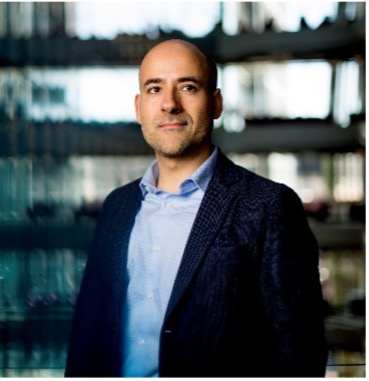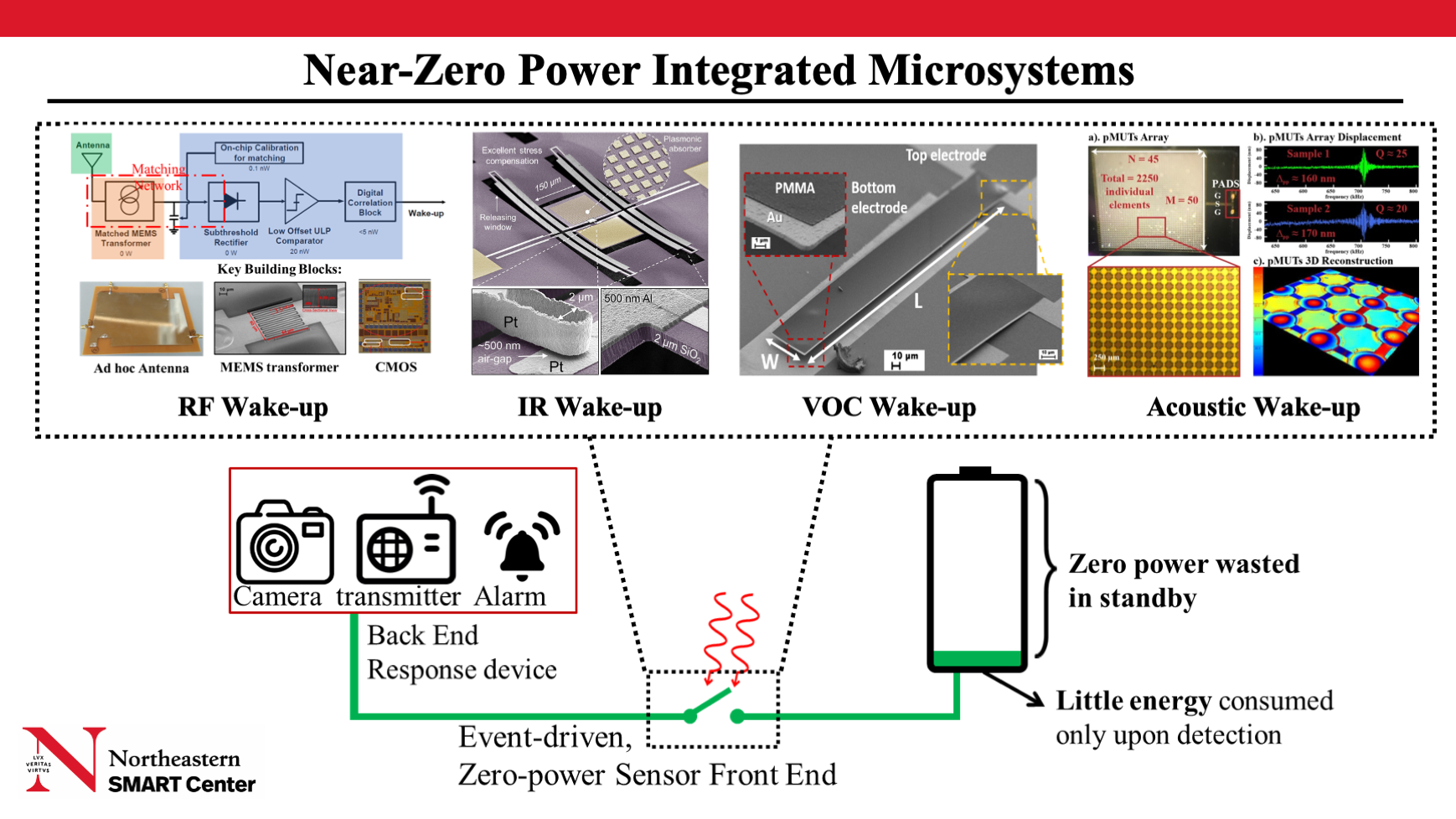Please join us for the June MIT.nano Seminar Series:
Matteo Rinaldi, PhD
 Professor, Electrical & Computer Engineering
Professor, Electrical & Computer Engineering
Director, Northeastern SMART Center and Kostas Nanotechnology Laboratory
Northeastern University
Date: Wednesday, June 15, 2022
Location: 34-401 (Grier combined)
Time: 3:00 PM - 4:00 PM EDT
Reception to immediately follow.
To receive event announcements, sign up for our email list.
Abstract
As a consequence of the internet-of-things revolution, the number of connected devices worldwide is expected to increase to 50–200 billion. To maintain such a large network, there is a need for wireless sensors with dimensions and power consumption that are orders of magnitude smaller than the state-of-the-art. Energy is the key challenge. Batteries have limited capacity, and existing sensors are not “smart” enough to identify targets of interest. Therefore, they consume power continuously to monitor the environment, even when there is no relevant data to be detected.

This talk will present a new class of zero-power microsystems that fundamentally break this paradigm, remaining dormant, with zero-power consumption, until awakened by a specific physical signature associated with an event of interest. In particular, Rinaldi will demonstrate infrared digitizing sensors that consist of plasmonically-enhanced micromechanical photoswitches (PMPs) that selectively harvest the impinging electromagnetic energy in design-defined spectral bands of interest and use it to create, mechanically, a conducting channel between two electrical contacts, without the need for any additional power source. Such a passive IR digitizer is capable of producing a wake-up bit when exposed to a specific IR spectral signature associated to a target of interest (such as the exhaust plume of a car, a forest fire, or a human body) while rejecting background interference. The capability of these zero-power sensors of consuming power only when useful information is present results in a nearly unlimited duration of operation, with a groundbreaking impact on the proliferation of the IoT.
Biography
Matteo Rinaldi is a professor in the Electrical and Computer Engineering Department at Northeastern University, director of the Kostas Nanotechnology Laboratory, and director of Northeastern SMART a university research center that, by fostering partnership between university, industry, and government stakeholders, focuses on the discovery, pilot manufacturing, and rapid transition of new micro and nano systems technologies that are foundational for emerging paradigms like zero-power sensing, 5G/6G communications, artificial intelligence, quantum information science, and nanomedicine.
Dr. Rinaldi received his Ph.D. degree in electrical and systems engineering from the University of Pennsylvania in December 2010. He worked as a postdoctoral researcher at the University of Pennsylvania in 2011, and he joined the Electrical and Computer Engineering Department at Northeastern University as an assistant professor in January 2012. Dr. Rinaldi’s group has been actively working on experimental research topics and practical applications to ultra-low power MEMS/NEMS sensors (infrared, magnetic, chemical, and biological), plasmonic micro and nano electromechanical devices, medical micro systems and implantable micro devices for intra-body networks, reconfigurable radio frequency devices and systems, phase change material switches, and 2D material-enabled micro and nano mechanical devices.
The research in Dr. Rinaldi’s group is supported by several federal grants (including DARPA, ARPA-E, NSF, DHS), the Bill and Melinda Gates Foundation, and the Keck Foundation with funding of $20+M since 2012.
Dr. Rinaldi has co-authored more than 180 publications in the aforementioned research areas and also holds 14 patents and more than 10 device patent applications in the field of MEMS/NEMS.
Dr. Rinaldi was the recipient of the IEEE Sensors Council Early Career Award in 2015, the NSF CAREER Award in 2014, and the DARPA Young Faculty Award class of 2012. He received the Best Student Paper Award at the 2009, 2011, 2015 (with his student), 2017 (with his student), and 2020 (with his student) IEEE International Frequency Control Symposiums; the Outstanding Paper Award at the 18th International Conference on Solid-State Sensors, Actuators and Microsystems, Transducers 2015 (with his student), and the Outstanding Paper Award at the 32nd IEEE International Conference on Micro Electro Mechanical Systems, MEMS 2019 (with his student).
Prof. Rinaldi is the founder and CEO of Zepsor Technologies, a startup that aims to bring to market zero standby power wireless sensors for various internet of things applications including human presence detection, distributed wireless fire monitoring systems, battery-less infrared sensor tags for occupancy sensing, and distributed wireless monitoring systems of plant health parameters for digital agriculture. Prof. Rinaldi is also the owner of Smart MicroTech Consulting LLC, a company that routinely provides consulting services to government agencies, large companies, and startups in the broad areas of micro and nano technologies, Internet of Things, wireless communication devices and systems, radio frequency devices, and systems and sensors.
